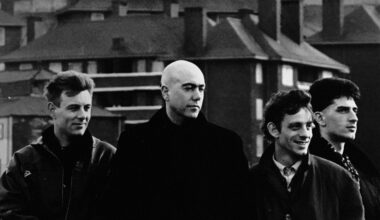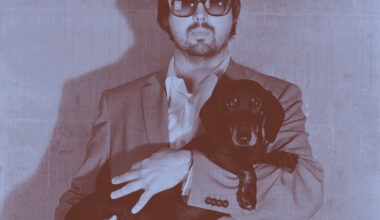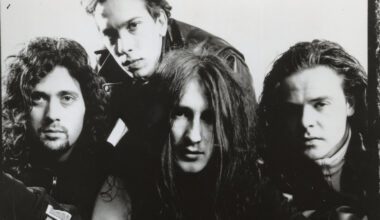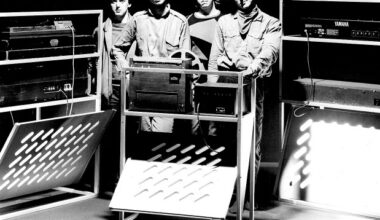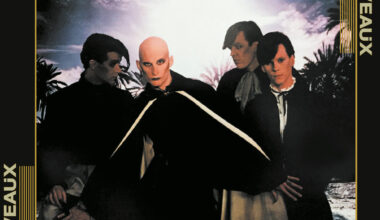We’re heading back to the post-punk daze of the Futurama Festival, with promoter John Keenan telling tales of flooded venues and vomiting singers
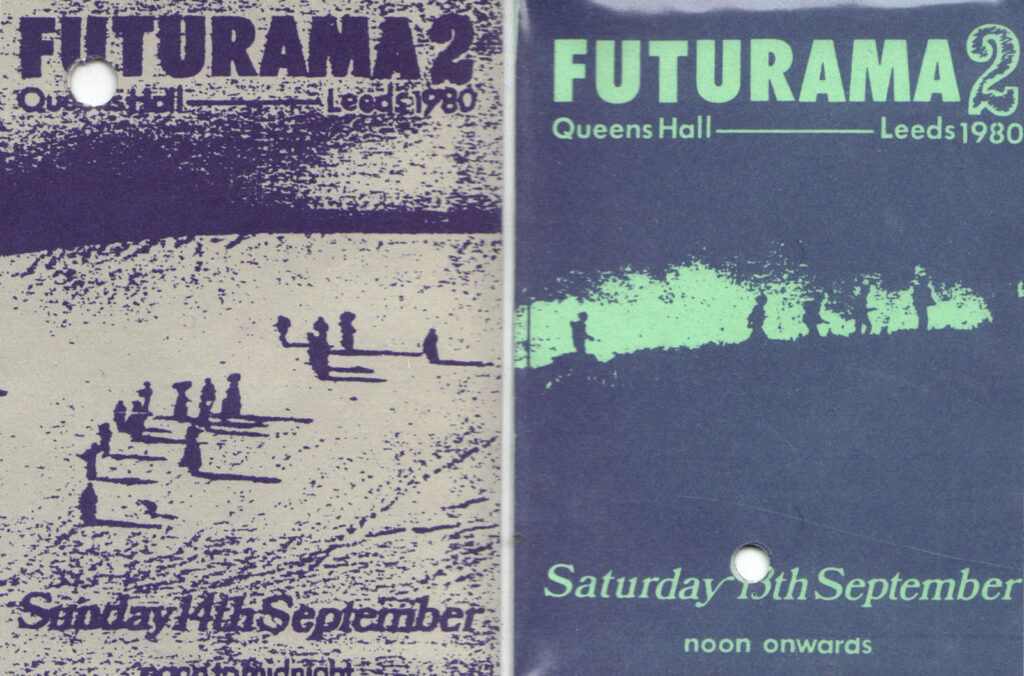
“I got a phone call from this bloke who said his name was Stevo and he was a DJ,” says John Keenan. “I’d never heard of him. Nobody had. This was before he started Some Bizarre Records. He said, ‘I play futurist music, can I come and DJ at your club?’. So I said, ’Futurist music? OK, that sounds good’. My main DJ at the club was Claire and she played lots of electronic music – OMD, Human League, Fad Gadget – but I thought this Stevo would bring something different, something special, you know.
“So we sorted out a date for him to come up, but when he arrived at the club he didn’t have any records with him. So I said, ‘Hang on a minute, where are your records?’. And he goes, ‘Records? I haven’t brought any records’. So I said, ‘What do you mean? You’re a DJ, aren’t you? Why haven’t you brought any records?’. And he goes, ‘Oh, I thought I’d just use some of yours’. I couldn’t believe it.”
John Keenan seems to have a story about pretty much every major figure on the late 70s and early 80s UK music scene. But then he knew most of them long before anybody else did. Keenan has worked as a promoter in Leeds for almost 40 years, starting with a weekly punk club at Leeds Poly in 1977 before opening the city’s famous F Club, which took place at three different venues in Leeds, none holding more than about 300 people, and later morphed into the Fan Club. The bands that Keenan put on reads like a Who’s Who of punk, post-punk and early experimental electronica, but he’s perhaps best known as the man behind the Futurama festivals, the first of which took place at Leeds Queens Hall in September 1979.
“A lot of the northern bands weren’t getting the attention I thought they should, so I decided I’d put some of them on at a big weekend event and try to get the music press up for it,” he recalls. “I was young and naive and I thought it would be like doing a normal gig, but a bit scaled up. Apart from the headliners, I got the bands for 50 quid, 100 quid tops. Looking at the line-up now, it seems pretty obvious, but most of those groups were just starting out then. It was actually billed as the World’s First Science Fiction Music Festival and I put ‘Futurama’ on the flyers as a sort of sub-title.”
The line-up of the inaugural Futurama included OMD, Cabaret Voltaire, Joy Division, The Fall, A Certain Ratio, Echo And The Bunnymen and Scritti Politti. PiL headlined the Saturday and Hawkwind, then arguably in their most electronic-oriented phase, topped the bill on the Sunday. The original plan was to also show sci-fi films, but the British Film Institute was having none of it. Keenan did manage to get hold of some lasers, though, but the water needed to keep the equipment cool almost flooded the venue. Tony Wilson from Factory Records acted as a compere for the event, with the bands playing on two stages arranged side by side.
“I paid £1,500 for the Queens Hall, which was a cavernous place where they parked buses by day and held car auctions most weekends,” notes Keenan. “They said they’d provide staging but they didn’t, so I had to get hold of some scaffolding and some eight-by-fours from a timber yard. I rounded up as many F Club members as I could find and we spent all night putting up the stages on the Friday. Splitting the PA and having two stages was a unique idea at the time, although it was later copied by lots of other festivals. While one band was playing on one stage, the next was line checking on the other, ready to start as soon as the first band was finished.”
The success of the 1979 Futurama was repeated at the same venue the next year, the line-up featuring Soft Cell, Siouxsie And The Banshees, Robert Fripp, Clock DVA, Classix Nouveau, Young Marble Giants, The Durutti Column, Naked Lunch and Vice Versa, who changed their name to ABC a few months after the event. Keenan says Vice Versa were managed by one of the group’s mothers, who he remembers as “a very shrewd woman”. U2 also played the 1980 Futurama, appearing five or six bands down the bill on the Saturday evening. Soft Cell played even earlier that day, coming onstage at around 2pm, while the venue was still filling up.
“Marc Almond was a student in Leeds and he used to come down to the F Club,” says Keenan. “If he didn’t have any money he’d say, ‘Will you let me in if I help hump in the equipment?’. I’d always let a few of them in for free like that. I bumped into him one day and he gave me a tape of his band, but I’d already compiled the Futurama bill for that year. He was like, ‘Oh, John, can’t you get us in somewhere please?’. So I said, ‘OK, I’ll fit you in’. So I fitted him in.
“Soft Cell got so much coverage from that gig. We had lots of European journalists at Futurama 2 and Soft Cell went down really well with them. I can understand that because they were doing something quite different. They were doing electronic music, but they weren’t like, say, Cabaret Voltaire, they had much stronger melodies and a pop feel and a very theatrical frontman. It wasn’t long before my old pal Stevo got on the phone to me again and he ended up putting Soft Cell on that first Some Bizarre album.”
Three more Futuramas followed, the 1981 and 1982 festivals taking place at Stafford Bingley Hall and Deeside Leisure Centre in Queensferry respectively, before Futurama 5 saw a return to the event’s spiritual home in Leeds in 1983. As always, the bills featured some of the most interesting groups of the time, among them New Order, Blancmange, Simple Minds, Dead Or Alive, 23 Skidoo, The Box and B-Movie.
“I never made any money out of the festival, but I came away with so many wonderful memories and I could tell you an anecdote about every single band that played,” laughs Keenan, who continues to promote gigs in Leeds to this day. “Jim Kerr was sick onstage when Simple Minds headlined Futurama 3. I think he might have told people afterwards that it was food poisoning, but it was his nerves. He was always very nervous when they played live and that was a big gig for them. But he kept on singing and it was a really good performance.
“That was also the year the Virgin Prunes wouldn’t get off the stage at the end of their set. They were funny. They were dressed up as cavemen. We pulled the plug, but they kept banging on the stage even while the next band started playing. I didn’t mind stuff like that, though. That’s what the Futurama was all about. Ideas that were a bit out of the ordinary, people trying to do something different and going against the grain. It made it a bit more difficult for us, but we were always able to adjust things. Everybody got out of it alive. Most of us did anyway.”

